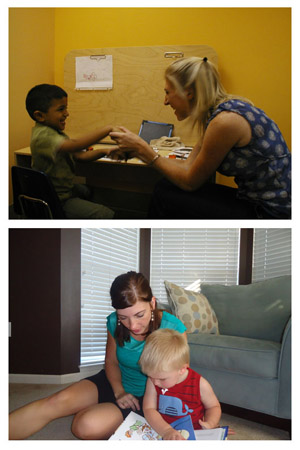Applied Behavior Analysis
 Behavior analysis is a field that includes two main branches:
Behavior analysis is a field that includes two main branches:
the experimental analysis of behavior,
and applied behavior analysis.
For several decades, experimental behavior analysts have identified and studied behavioral principles through systematic scientific study, often in laboratory settings. Applied behavior analysts specialize in using scientifically validated principles to change behavior in everyday life. In a quality applied behavior analysis (ABA) program, all teaching procedures are derived from scientific research, and during treatment, each individual’s behavior is measured and graphed.
There are ample studies that have shown the effectiveness of ABA in teaching new, functional skills (Goldstein, 2002; Odom et al., 2003; McConnell, 2002), as well as reducing problematic behaviors (Horner et al., 2002).
Research has shown that many children with autism benefit from intensive behavioral interventions , consisting of 20 or more hours of ABA per week (Smith, 1999).
The United States Surgeon General (1999) concluded “Thirty years of research demonstrated the efficacy of applied behavioral methods in reducing inappropriate behavior and in increasing communication, learning and appropriate social behavior.”
